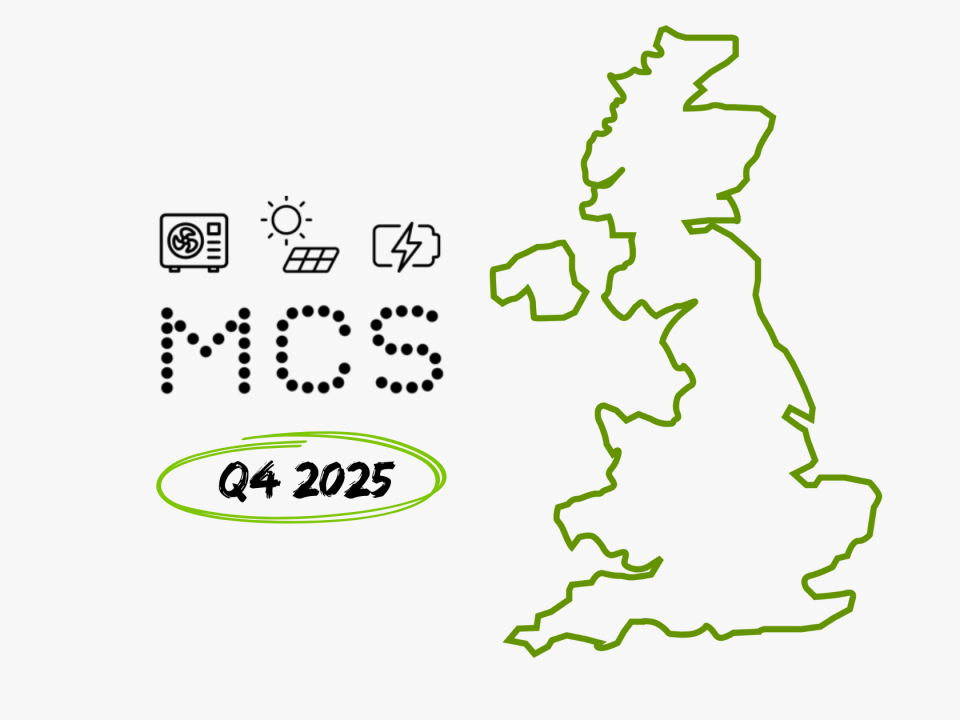
Start at Home: Giving First-Time Heat Pump Installers a Real Start
July 21, 2025
BPEC Training for Renewable Energy Installers: Insights from MCS Data
August 25, 2025In today’s blog, we unpack the new UK Solar Roadmap, and explore the implications for electricians, installers, and tradespeople looking to pivot into renewables. More importantly, we’ll explain why training, MCS registration, and proper accreditation are now integral if you want to take part in the UK’s ‘Renewable Revolution.’
UK Solar Roadmap: A New Chapter for Solar in the UK
Earlier this month, the government unveiled its UK Solar Roadmap, a collaborative action plan between policymakers and industry leaders designed to triple the UK’s solar capacity by 2030. Backed by the newly reconvened Solar Taskforce, the plan outlines over 70 key actions across supply chains, grid access, skills, sustainability, and community engagement (UK Government, 2024).
Ed Miliband, Secretary of State for Energy Security and Net Zero, called solar “one of the cheapest and quickest to build power sources we have” and placed it at the heart of the UK’s mission to become a clean energy superpower (which is no surprised based on the most recent figures.) The mission is clear: reach 45–47 GW of installed capacity by 2030 – and create an estimated 35,000 solar jobs in the process.
But this isn’t just a strategy document for politicians. This roadmap is a real signal to the trades that solar is no longer niche, it’s national infrastructure. And that comes with expectations.
Solar is growing. So is the demand for qualified people.
For working electricians, heating engineers, and tradespeople across the UK, the opportunities are real, but so is the pressure to meet new standards. The Roadmap makes it clear that government support is tied to proper training, regulation, and consumer trust.
In short: it’s not just about getting installs done as fast as possible. It’s about doing them right.
That means being able to design systems properly, safely connect to the grid, understand modern inverter and battery setups, and provide clean, documented handovers. These aren’t soft skills. They’re becoming baseline requirements, especially for those looking to register with MCS and work on funded or domestic projects. And in the age of technology, be sure that those who cut corners will be hung out to dry for the world to see (something we don’t want to happen to anyone.)
Accredited Training isn’t optional anymore, it’s expected.
As demand for solar grows, customers, councils, and commercial developers will increasingly look for evidence of training and accreditation. That’s where MCS comes in, providing nationally recognised certification that proves competence, safety, and professionalism.
The Solar Roadmap echoes this, highlighting the need to build a skilled workforce that can deliver clean installs at scale, without compromising on quality (Solar Taskforce, 2024). MCS registration is already a prerequisite for access to most funding schemes, including government-backed loans and incentives. But even outside of formal schemes, it’s rapidly becoming a trust signal for consumers.
That’s why we’re aligning our BPEC-accredited solar training to meet both technical needs and MCS standards, so learners leave ready to hit the ground running, and businesses gain install-ready staff.
GRE’s role in building that future
At GRE Energy Training, we’re not just responding to these changes, we’re helping drive them forward. Our training centre is already filled with electricians looking to futureproof their careers, and new entrants eager to break into renewables. What they all share is a desire to learn the right way, and a passion for doing things right.
Our BPEC Level 3 Solar PV and Battery Storage courses include real-world installations, live assessments, and aftercare support to help learners not just pass, but progress. And we’ve made sure every part of the course maps to MCS expectations and the future of domestic and commercial installs (for design, installation and maintenance.)
We’re also working closely with suppliers, industry bodies, and local employers to ensure training stays relevant, so that what’s taught in our classrooms reflects what’s needed on site. Oh, and did we mention our trainers still actively carry out installs?
Final thoughts: this is the moment to level up
The Solar Roadmap is more than a policy paper. It’s a call to arms. For tradespeople who’ve been thinking about solar, or need to renew their qualification – this is the time to commit. The Solar rollout is not flowing down, and the industry will continue to need skilled, certified, and confident professionals to deliver it.
If you want to be one of them, we’re here to help you get started, or take your skills to the next level. Start your journey by clicking here.
References (APA 7)
UK Government. (2024). Solar Roadmap – United Kingdom powered by solar. Department for Energy Security and Net Zero. https://www.gov.uk/government/publications/solar-roadmap/
Solar Taskforce. (2024). Clean Power Action Plan. HM Government.
MCS. (2023). Becoming an MCS certified installer. https://mcscertified.com/installers/becoming-certified/




